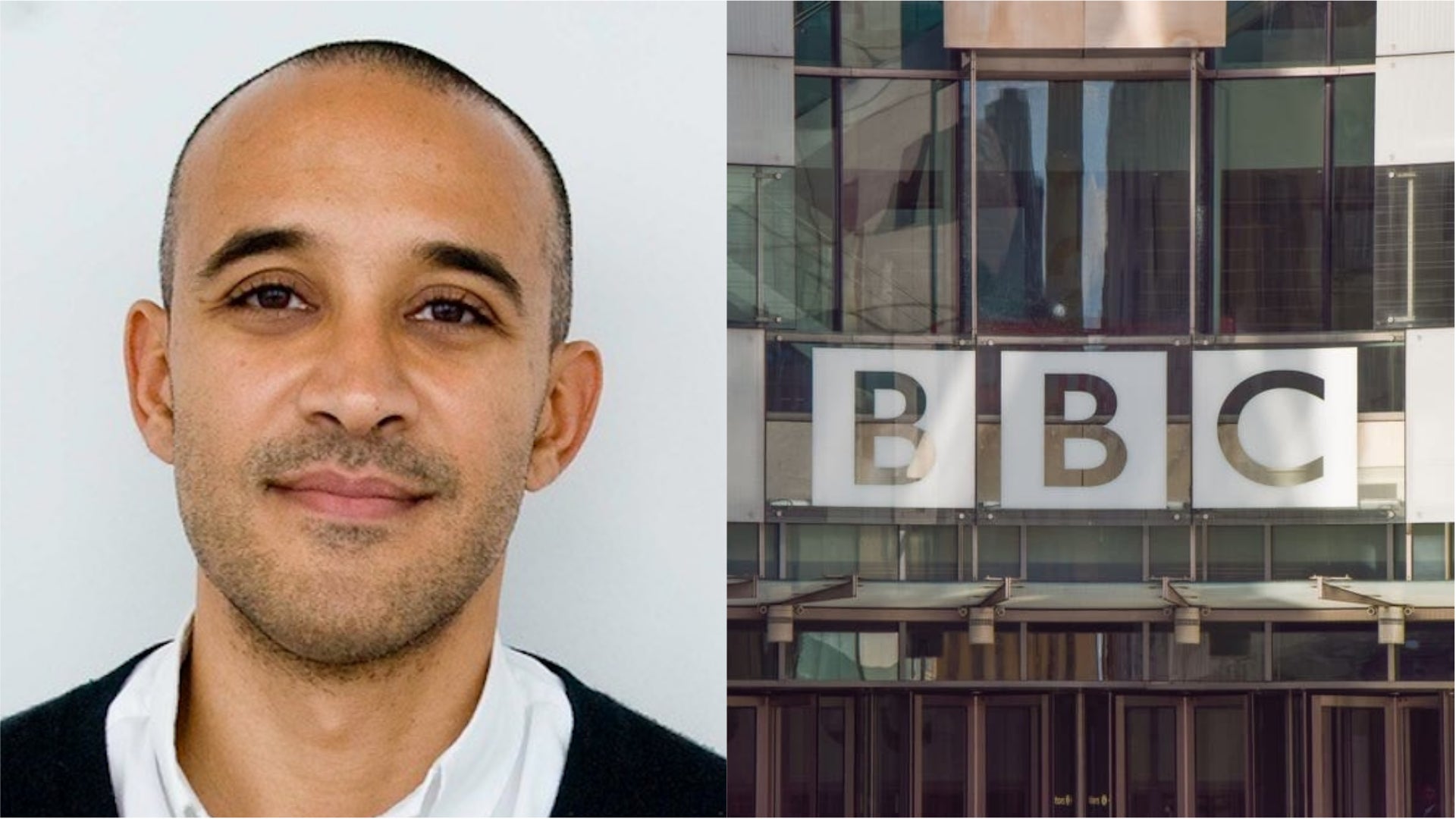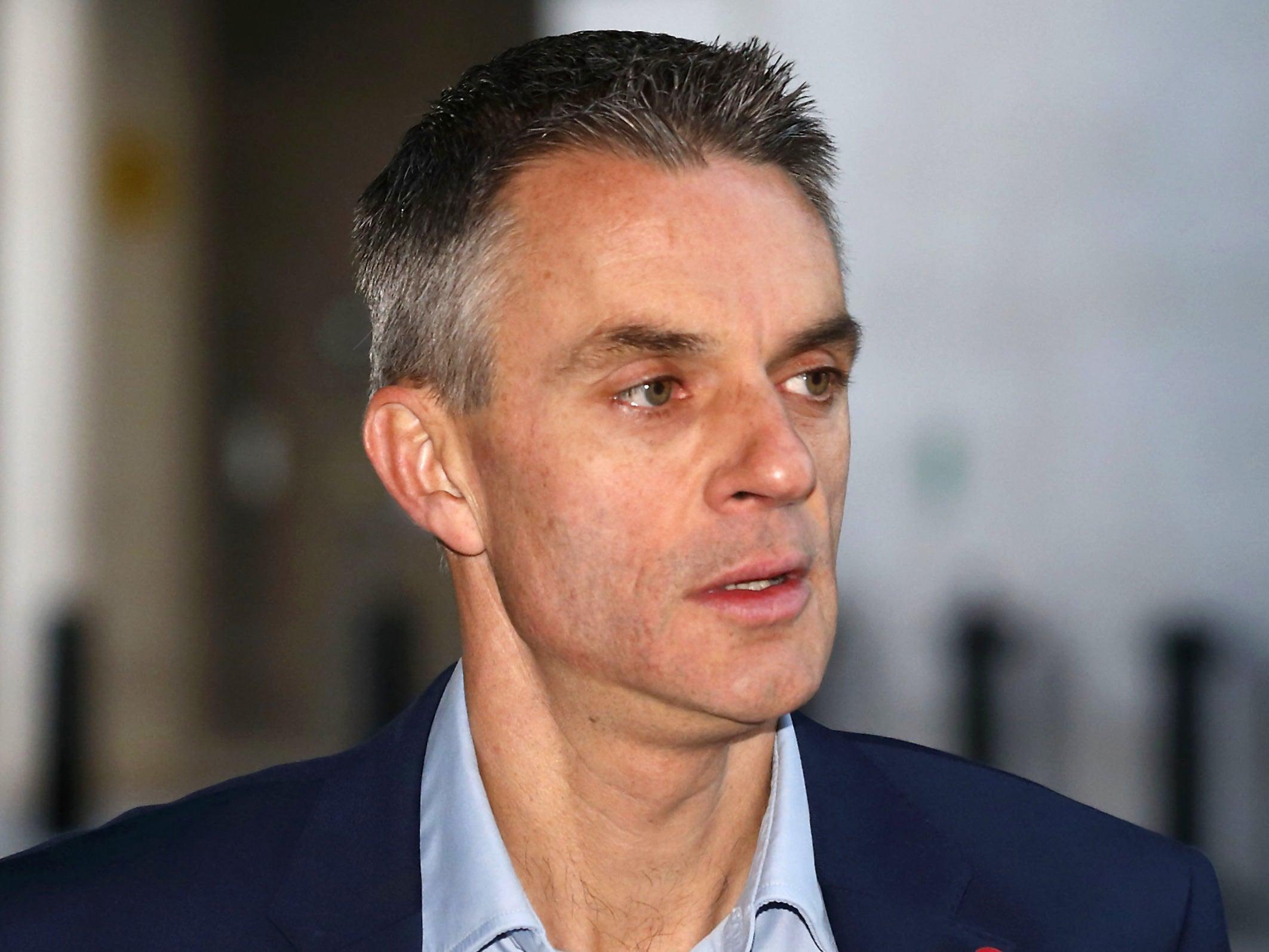The Independent's journalism is supported by our readers. When you purchase through links on our site, we may earn commission.
‘Every journalist should support diversity,’ says Marcus Ryder after BBC ‘blocks’ top job prospect
Exclusive: Media worker’s appointment reportedly blocked amid concerns about his diversity ‘campaigning’

Your support helps us to tell the story
From reproductive rights to climate change to Big Tech, The Independent is on the ground when the story is developing. Whether it's investigating the financials of Elon Musk's pro-Trump PAC or producing our latest documentary, 'The A Word', which shines a light on the American women fighting for reproductive rights, we know how important it is to parse out the facts from the messaging.
At such a critical moment in US history, we need reporters on the ground. Your donation allows us to keep sending journalists to speak to both sides of the story.
The Independent is trusted by Americans across the entire political spectrum. And unlike many other quality news outlets, we choose not to lock Americans out of our reporting and analysis with paywalls. We believe quality journalism should be available to everyone, paid for by those who can afford it.
Your support makes all the difference.Black media executive Marcus Ryder has spoken of the importance of anti-racism awareness following reports BBC director-general Tim Davie blocked his appointment to the corporation over concerns about his “campaigning”.
The diversity champion was approached earlier this year by the corporation to apply for a new role, based in Birmingham, overseeing Radio 1’s Newsbeat bulletins and the news service of the Asian Network.
Despite progressing to the final round of interviews for the role, Mr Ryder says he did not then hear back from BBC recruiters. He later learned that the corporation gave the job to an internal candidate.
A BBC source told The Daily Mail that Mr Davie had flagged concerns about hiring Mr Ryder, who holds a prominent role within the Sir Lenny Henry Centre at Birmingham City University, because he is viewed as “campaigner” in the industry.
“If anything constructive can come out of this whole episode, it should be recognition that diversity is not a campaigning issue and should not affect a journalist’s ability to be judged as impartial in doing their job,” Mr Ryder told The Independent.
“There’s a whole argument as to whether campaigners can be journalists because they’ve got an agenda. I would see myself more as an advocate and a champion for diversity; I don’t think that diversity is about campaigning, any more than anti-racism (for example) is about campaigning.
“It’s not a political issue – highlighting the importance of this is a statement of fact.”

He added: “Every journalist should be anti-racist, anti-sexist and believe in the principles of diversity and inclusion which are core BBC values.”
The director-general, who denied ‘vetoing’ the application process in a statement to the Mail, has now offered to meet with Mr Ryder, former Chair of the Royal Television Society’s Diversity Committee.
This will take place on 9 November after he collects an MBE from Buckingham Palace for services to diversity in media, The Independent can reveal.
Just last week, the media executive was named on the annual Powerlist as one of Britain’s most influential Black figures for his work around media diversity.
In response to Ryder’s treatment, dozens of Black and Asian UK creatives including Sir Lenny Henry, Afua Hirsch and Gary Younge penned an open letter to BBC Chair Richard Sharp seeking reassurances that “advocating for our industry to be diverse will not block people from being employed by the BBC.”
“We do not believe championing diversity and inclusion, fighting racism and making our profession a more equitable place for people to work should ever be viewed as an impartiality issue,” the letter reads.
“The reports over the last few days have had a chilling effect among all journalists and production staff of colour – that talking about diversity will disadvantage us, and be used against us if we ever want to work at BBC News or indeed anywhere at the BBC.”
The corporation recently came under fire by right-wing media platforms, commentators and trolls for hiring Jess Brammar to oversee its news channels in light of her anti-racism positioning and support of the principle of Black Lives Matter.

Mr Ryder has a track-record of award-winning news productions for a number of organisations including the BBC, where he was previously head of Current Affairs at BBC Scotland for almost 10 years, and China’s largest digital broadcaster CGTN, spanning a period of over 25 years.
He has co-edited a book entitled Black British Lives Matter, which will be published next month, and also co-authored another book called Access All Areas: The Diversity Manifesto for TV and Beyond.
Mr Ryder said that he had only ever twice publicly disagreed with the BBC – when breakfast presenter Naga Munchetty was sanctioned for her comments on Donald Trump’s racism and over the broadcasting of the N-word.
On both occasions, the corporation reversed its decisions and aligned with its former staff member’s views.
A BBC spokesperson said: “We’d never comment on who did or didn’t apply for a job.
“After an external search, BBC News decided that as this role was bringing together departments from across the country, we were looking for an internal candidate with an existing understanding of the BBC, so did not take forward any external candidates for this particular post.
“After a separate recruitment process, we appointed an internal candidate on a year’s secondment; this was a BBC News decision. It is wrong to suggest any veto was exercised on any candidate.”
Join our commenting forum
Join thought-provoking conversations, follow other Independent readers and see their replies
Comments